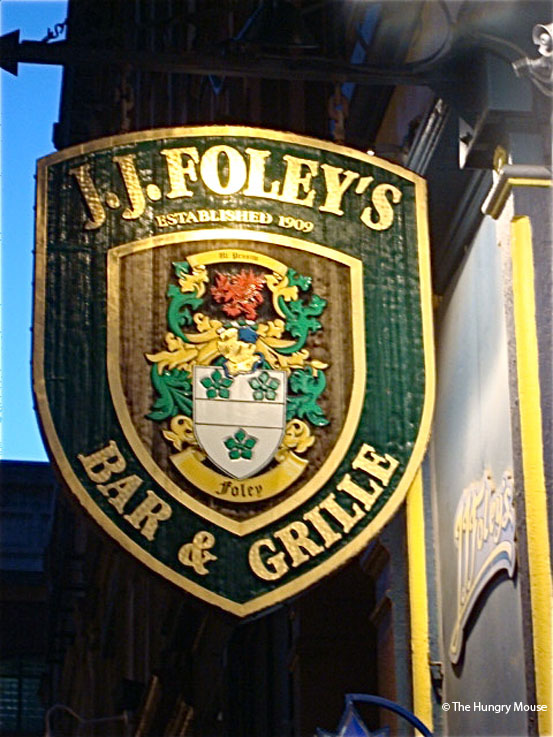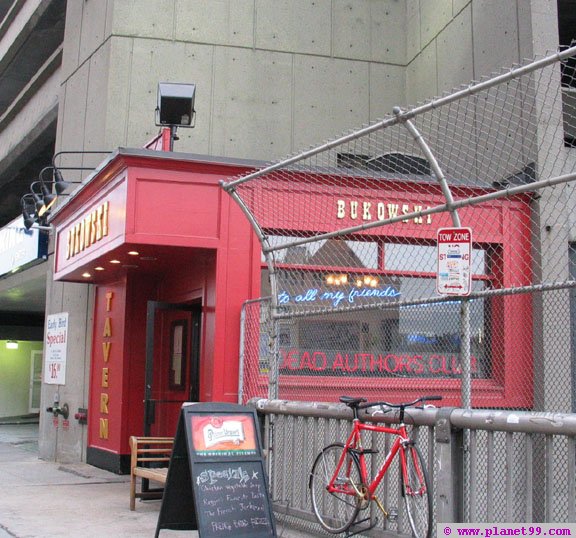Wacken is a sleepy farm town in
the far north of Germany, near the
Danish border. It has a population comfortably under 2000 and nobody south of
Itzehoe would ever have heard of it if it hadn’t been for a group of friends
who, in 1990, decided to organise a heavy metal concert to fight the
neverending boredom they had faced their entire life. As most of you will know, their one-off concert
turned into THE heavy metal event in the world and now attracts 75.000
headbangers every summer from all corners of the globe.
In 2005, Korean film director
Sung Hyung Cho decided to make a movie about the phenomenon that is Wacken Open
Air and how it influences local life.
The movie starts with expansive
views of grass land, rustling acres of grain and corn and patches of grazing cows. A tractor makes its way up the side of a distant hill. From there, we are
introduced to a cross section of the town’s population, consisting mainly of
quiet, hardworking farm folk, who have lived in Wacken their entire lives. The
main character is a good humoured farmer who, by the look of it, divides his
time between smoking, drinking, and running his farm, in roughly equal
measures. Throughout the movie, we see him wandering around his farm, the town
and the local pub, moving between them on his quad bike. His wife is mostly
quiet, apart from her attempts to convince him to give up chain smoking which,
without exception, fall on deaf ears. Besides a selection of farmers, we also
meet 2 elderly ladies, who voice their concern about their town being swamped
by drunk Satanists donning black clothes and inverted cross jewelry. They hesitantly talk to the movie crew, and
are later filmed during church choir practice. Apart from the god fearing older generation, the town’s population also includes some
younger people. One of them is a mullet wearing, chainsmoking mechanic, who is filmed while doing
maintenance on his motorcycle. As it turns out, he was part of the organising
committee of the inaugural Wacken Open Air in 1990. The festival turned out to
be a success, and his fellow organisers suggested setting up a proper company
to focus full time on organising the festival and taking it to the next level.
Our mechanic politely declined as he could not see a future in gig
organising and thought it would be smarter to focus on his daytime job and advancing his career, rather than
fooling around and wasting time on something as periferal as heavy metal. As
you would have guessed, the factory he worked in closed a couple of years later
and the frustration in his voice is palpable as he looks on from the side lines
while his high school buddies rake in 8 figure sums each year on ticket fees
alone, while he is struggling to make ends meet in the regular market place. The essence of the documentary, however, is
provided by a portrait of two local girls, who pop up throughout the movie. We
first meet them while they’re exercising. The walls of their exercise room are
full of cut-outs from glossy magazines, with fashion tips from exotic places
like Milan, Paris and Miami. It soon becomes clear that the girls, and with
them the majority of local youth, are so bored out of their mind in Wacken,
that they will jump at any chance of getting out of there.
The festival provides a nice
diversion for 4 days every year and they’re always roaring to go (the entire
population of the town gets a free ticket to the festival) but still, as
they’re locals, there’s always the risk that a neighbour, aunt or schoolmate
sees them, so going completely loco is out of the question, as one of the girls
laments. The girls openly dream about leaving Wacken and moving to
Berlin, Munich or any other place that does not so closely resemble hell.
At this point in the documentary,
the festival slowly starts to encroach on the town. The first portaloos are
rolled into town, and while we still get regular updates from our friend, the
chainsmoking, lager swilling farmer, it is clear that the atmosphere in town is
changing. One of the church ladies is packing her bags, going for a visit to her sister elsewhere in
Germany to avoid the 4 day festival of noise and debauchery. The rest of the
town prepare for the influx of black clad drunks who are ready to throw their
money at the local economy which, I would guess, gets 90% of its annual
turnover out of the festival. Having been to the festival 4 times myself, I can
tell that the festival is what keeps the town running. The local supermarket,
which is at the bottom of a slip road, has a parking lot that, in the days
leading up to the festival, is completely filled with pallets full of cases of
lager, stacked about 9 foot high. There
are cargo containers full of vodka, whisky and wine. It is quite a sight as you
approach the supermarket from the festival ground and see the ant hill of
people walking in and out of the store, inadvertently carrying cases of beer,
whisky and whatever other alcohol they can get their hands on.
When the festival proper gets
underway, the footage inevitably changes to the usual “WACKEN RUUULES!!
\M/” montage of drunks wandering the
streets, clutching cans of beer and half empty bourbon bottles. People can be
found passed out on the sidewalk by noon. Every local is selling beer from
their drive way and breakfast, for those who can be bothered to have solid food.I
can tell from experience that it is one of the best feelings you will ever
experience. Going to Wacken discharges you from normal society
for four days, and you can behave like an idiot for the duration. It’s bliss.
The film continues with
another long time Wacken tradition; the performance of the Wacken fire brigade
umpa band, which plays in the massive biergarten each year. The church lady who
didn’t skip town has decided to attend the show with her husband, who is
happily watching the performance with a beer in his hand. Meanwhile, his wife
looks extraordinarily anxious as she is surrounded by jumping metalheads who,
most likely, have each consumed more alcohol since breakfast than she has in her
entire life. As the party continues, footage moves between the festival, where
bands play and people are having the time of their lives and the locals who try
to make a buck out of the festival and look on from the outside, now foreigners
in their own town.
As the festival draws to a close,
people start to pack their vans and stumble to the exit of the festival ground.
The movie closes out with shots of the Wacken country side, quiet again, like
at the start of the movie, but the views now polluted by abandoned tents,
sleeping bags and piles of empty cans and bottles. The locals have their town back for the next
361 days, much to the delight of the older generation who have their
cherished peace and quiet back, and to
the despair of the local youth who, once again, see the town’s only entertainment
disappear over the horizon for another year.
If you are expecting a movie
about heavy metal, let me warn you. This is not strictly a movie about heavy
metal, or even the festival itself, but rather a documentary that explores the
feelings of the locals and tries to show how they feel about the infringement
caused on their day-to-day lives by the annual 4day invasion of 75.000 long
haired, black clad drunks that flood their town. You will not hear a guitar in the first 52
minutes of the movie. At a more subliminal level, it shows the problems that
appear in most farm communities in this day and age: the older generation
trying to protect their smalltown agricultural interests against ever increasing
competition from large scale farming conglomerates in countries like Russia, the
USA or Ukraine, while the younger generation only has one point on the agenda,
which is getting the hell out of there as soon as they can.
The thing that stuck with me most
were the two young girls we met early on. The movie was released in 2006, which
means it was filmed in 2005, the last time I attended the festival
myself. They were in their late teens or early twenties when the movie was
filmed, which means they must be in their mid to late twenties now. I wonder if
they realised their dreams by moving to Berlin or Paris or some other
cosmopolitan place that is a thousand miles away from Wacken in every sense
of the word, or that they succumbed to the only other outcome available,
marrying a local boy and spending the rest of their lives watching the corn
grow. I’d really like to know.










